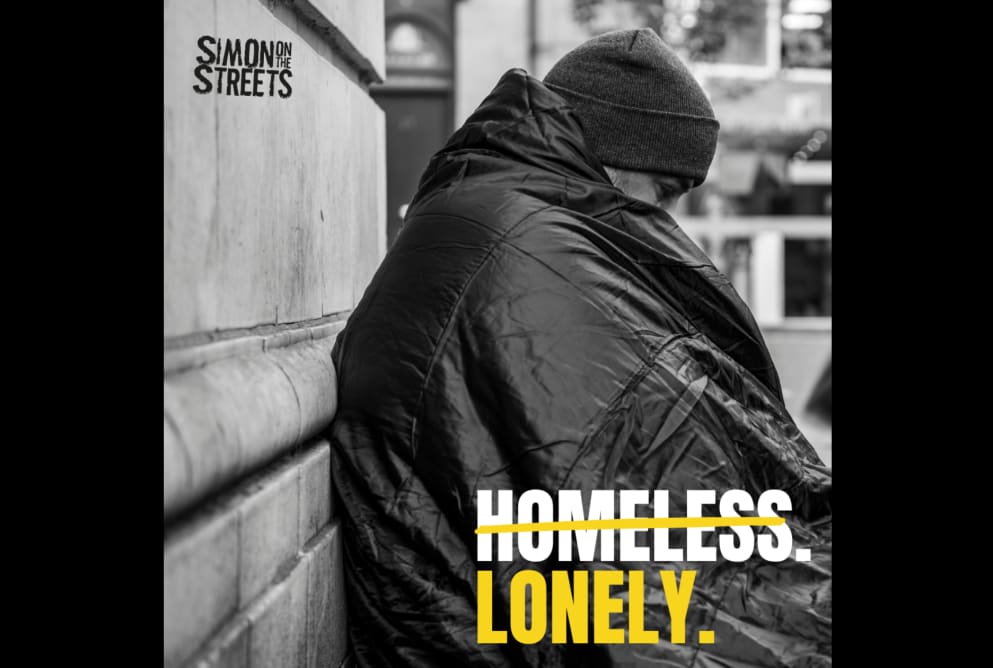Christmas is one of the busiest, most special and social times of the year for many of us. Many of us have plans with friends and family, and it can sometimes feel like there are more parties, events and get-togethers than we can handle. There's an abundance of festive cheer.
But many people find Christmas to be far from the most wonderful time of the year. It’s actually quite the opposite.
Whether through grief, relationship breakdowns, mental health challenges or homelessness (in whatever form that might take), Christmas can be a painfully lonely time for a lot of people and a stark reminder of the things they’ve lost or might never have had.
Looking beyond homelessness this Christmas
This Christmas, Simon on the Streets encourages you to look behind the word ‘homeless’ and connect with the person behind the label.
That person might:
Be spending their first Christmas away from friends, family or other support system.
Not have had a friendly conversation with someone in weeks, or even months.
Be losing hope.
We need to leave preconceived stereotypes at the door and remember that we’re all human and deserve to be treated with kindness and respect.
Could you support the work of our outreach team as they help those facing homelessness feel less lonely this Christmas?
What’s the difference between being alone and lonely?
Loneliness is more of an emotional state than a physical one. Even if one is surrounded by their favourite people, they can still feel lonely.
Someone experiencing chronic loneliness might feel like they can’t connect with people or that no one understands them. They may feel they don’t have a strong support system or real ‘friends’. Having ‘people you know’ is very different to really being able to share your vulnerabilities with someone.
Finally, someone experiencing loneliness may feel unheard when they do reach out to people.
It’s not hard to see how someone dealing with homelessness might feel all of these things to the highest degree: not having consistent support, being ignored by the public, and being unable to find support from services that are already stretched to the limit.
The effects of chronic loneliness
Higher risk of mental health difficulties
While loneliness isn’t technically a mental health condition on its own, it can make other conditions, such as depression or anxiety, significantly worse, according to Mind. In addition, the Mental Health Foundation suggests that as many as one in eight people have experienced suicidal thoughts as a result of chronic loneliness.
Higher risk of substance abuse
Unfortunately, those experiencing homelessness are already statistically more likely to struggle with substance abuse.
Loneliness can be a contributing factor here, whether a person is trying to escape their reality or is isolated because of their addiction.
Higher risk of physical health problems
Believe it or not, there’s even evidence to suggest that prolonged periods of loneliness can put a person at higher risk of developing physical health problems, such as dementia.
It’s time to tackle loneliness and break the cycle of homelessness for good.
Loneliness is tackled through connection, and connections are made through face-to-face interactions and the building of trust. This is the key role our outreach team play as they work with people every single day across Leeds and Bradford.
We can only keep our outreach team in the community with your donations this Christmas. They’re more than just a friendly face—they’re a lifeline.
To donate £10 to the Simon on the Streets Christmas campaign, text SIMON to 70470.
Alternatively, you can donate now here.
